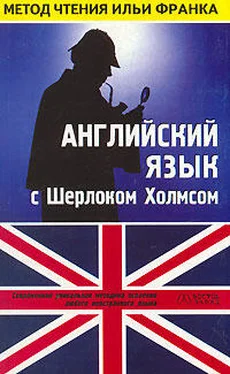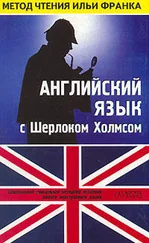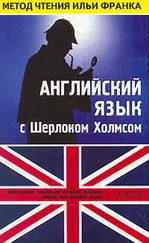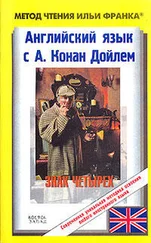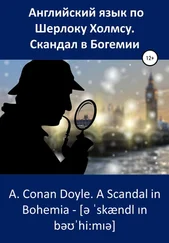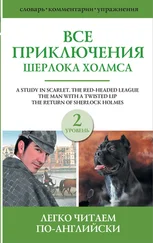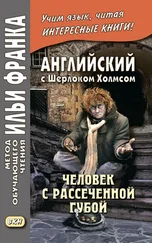century ['sentS@rI], heirs [e@z], Regency ['ri:dZ@nsI], mortgage ['mO:gIdZ], morose [m@'r@us]
"The family was at one time among the richest in England, and the estates extended over the borders into Berkshire in the north, and Hampshire in the west. In the last century, however, four successive heirs were of a dissolute and wasteful disposition, and the family ruin was eventually completed by a gambler in the days of the Regency. Nothing was left save a few acres of ground, and the two-hundred-year-old house, which is itself crushed under a heavy mortgage. The last squire dragged out his existence there, living the horrible life of an aristocratic pauper; but his only son, my stepfather, seeing that he must adapt himself to the new conditions, obtained an advance from a relative, which enabled him to take a medical degree and went out to Calcutta, where, by his professional skill and his force of character, he established a large practice. In a fit of anger, however, caused by some robberies which had been perpetrated in the house, he beat his native butler to death and narrowly escaped a capital sentence. As it was, he suffered a long term of imprisonment, and afterwards returned to England a morose and disappointed man.
"When Dr. Roylott was in India he married my mother (женился на моей матери) , Mrs. Stoner, the young widow of Major-General Stoner (молодой вдове генерал-майора Стонера) , of the Bengal Artillery (бенгальской артиллерии) . My sister Julia and I were twins (близнецы) , and we were only two years old at the time of my mother's re-marriage (ко времени новой женитьбы нам было два года) . She had a considerable sum of money (изрядное денежное состояние) — not less (не менее) than 1000 pounds a year (в год) — and this she bequeathed to Dr. Roylott entirely (завещала доктору Ройлотту полностью) whilst we resided with him (пока мы проживали с ним) , with a provision that a certain annual sum (с условием, что определенная ежегодная сумма) should be allowed (предоставлена) to each of us in the event of our marriage (в случае нашего замужества) . Shortly after our return (вскоре после нашего возвращения) to England my mother died (умерла) — she was killed eight years ago (была убита восемь лет назад) in a railway accident (в железнодорожной катастрофе) near Crewe. Dr. Roylott then abandoned his attempts to establish himself in practice (оставил попытки обосноваться в практике = практикуя) in London and took us to live with him in the old ancestral house at Stoke Moran (и забрал нас жить с ним в старый родовой дом в Сток-Морене) . The money which my mother had left was enough for all our wants (деньги, которые оставила нам наша мать, были достаточны для всех наших желаний) , and there seemed to be no obstacle to our happiness (и казалось, не было препятствия нашему счастью) .
marriage ['m&rIdZ], bequeathed [bI'kwi:Dd], obstacle ['Obst@kl]
"When Dr. Roylott was in India he married my mother, Mrs. Stoner, the young widow of Major-General Stoner, of the Bengal Artillery. My sister Julia and I were twins, and we were only two years old at the time of my mother's re-marriage. She had a considerable sum of money — not less than 1000 pounds a year — and this she bequeathed to Dr. Roylott entirely whilst we resided with him, with a provision that a certain annual sum should be allowed to each of us in the event of our marriage. Shortly after our return to England my mother died — she was killed eight years ago in a railway accident near Crewe. Dr. Roylott then abandoned his attempts to establish himself in practice in London and took us to live with him in the old ancestral house at Stoke Moran. The money which my mother had left was enough for all our wants, and there seemed to be no obstacle to our happiness.
"But a terrible change came over our stepfather about this time (но ужасная перемена овладела нашим отчимом около этого времени) . Instead of making friends (вместо делания друзей = приобретения друзей) and exchanging visits with our neighbors (и обмена визитами с нашими соседями) , who had at first been overjoyed to see (которые сначала были очень счастливы видеть) a Roylott of Stoke Moran back in the old family seat (/что/ Ройлотт из Сток-Морена вернулся в старое родовое поместье) , he shut himself up (запер себя) in his house and seldom came out (редко выходил наружу) save (кроме как) to indulge in ferocious quarrels (чтобы доставить себе удовольствие /ввязаться в/ дикие ссоры) with whoever might cross his path (с кем бы то ни было, /кто/ мог пересечь его тропу = с первым встречным) . Violence of temper (неистовство нрава) approaching to mania (доходящее до мании) has been hereditary in the men of the family (было наследственно по мужской линии в этой семье) , and in my stepfather's case (в случае моего отчима) it had, I believe, been intensified by his long residence in the tropics (было усилено долгим жительством в тропиках) . A series of disgraceful brawls took place (серия, полоса постыдных скандалов произошла) , two of which ended in the police-court (два из которых окончились в полицейском суде) , until at last he became the terror of the village (пока, наконец, он не стал кошмаром селения) , and the folks would fly at his approach (люди убегали при его приближении) , for he is a man of immense strength (огромной силы) , and absolutely uncontrollable in his anger (совершенно неконтролируемый в своем гневе) .
neighbors ['neIb@], ferocious [f@'r@uS@s], quarrels ['kwA.r@lz], hereditary [hI'redIt@rI]
"But a terrible change came over our stepfather about this time. Instead of making friends and exchanging visits with our neighbors, who had at first been overjoyed to see a Roylott of Stoke Moran back in the old family seat, he shut himself up in his house and seldom came out save to indulge in ferocious quarrels with whoever might cross his path. Violence of temper approaching to mania has been hereditary in the men of the family, and in my stepfather's case it had, I believe, been intensified by his long residence in the tropics. A series of disgraceful brawls took place, two of which ended in the police-court, until at last he became the terror of the village, and the folks would fly at his approach, for he is a man of immense strength, and absolutely uncontrollable in his anger.
"Last week he hurled (швырнул) the local blacksmith over a parapet into a stream (местного кузнеца через перила в реку) , and it was only by paying over all the money (и только выплачиванием всех денег) which I could gather together (которые я могла собрать) that I was able to avert another public exposure (смогла избежать другого публичного скандала: «представления») . He had no friends at all (у него не было друзей вообще) save the wandering gypsies (кроме странствующих цыган) , and he would give these vagabonds leave to encamp (давал этим бродягам позволение располагаться лагерем) upon the few acres of bramble-covered land (на нескольких акрах заросшей: «покрытой» ежевикой земли) which represent the family estate (которая представляет = составляет родовое имение) , and would accept in return the hospitality of their tents (принимал в обмен гостеприимство их шатров) , wandering away with them sometimes for weeks on end (кочуя вместе с ними иногда недели напролет) . He has a passion also for Indian animals (имеет страсть также к индийским животным) , which are sent over to him (пересылаются ему) by a correspondent (корреспондентом = приятелем) , and he has at this moment a cheetah and a baboon (имеет сейчас гепарда и бабуина) , which wander freely over his grounds (которые разгуливают свободно по его землям) and are feared by the villagers (их опасаются /сельские/ жители) almost as much as their master (почти столь же сильно, как и их хозяина) .
Читать дальше
